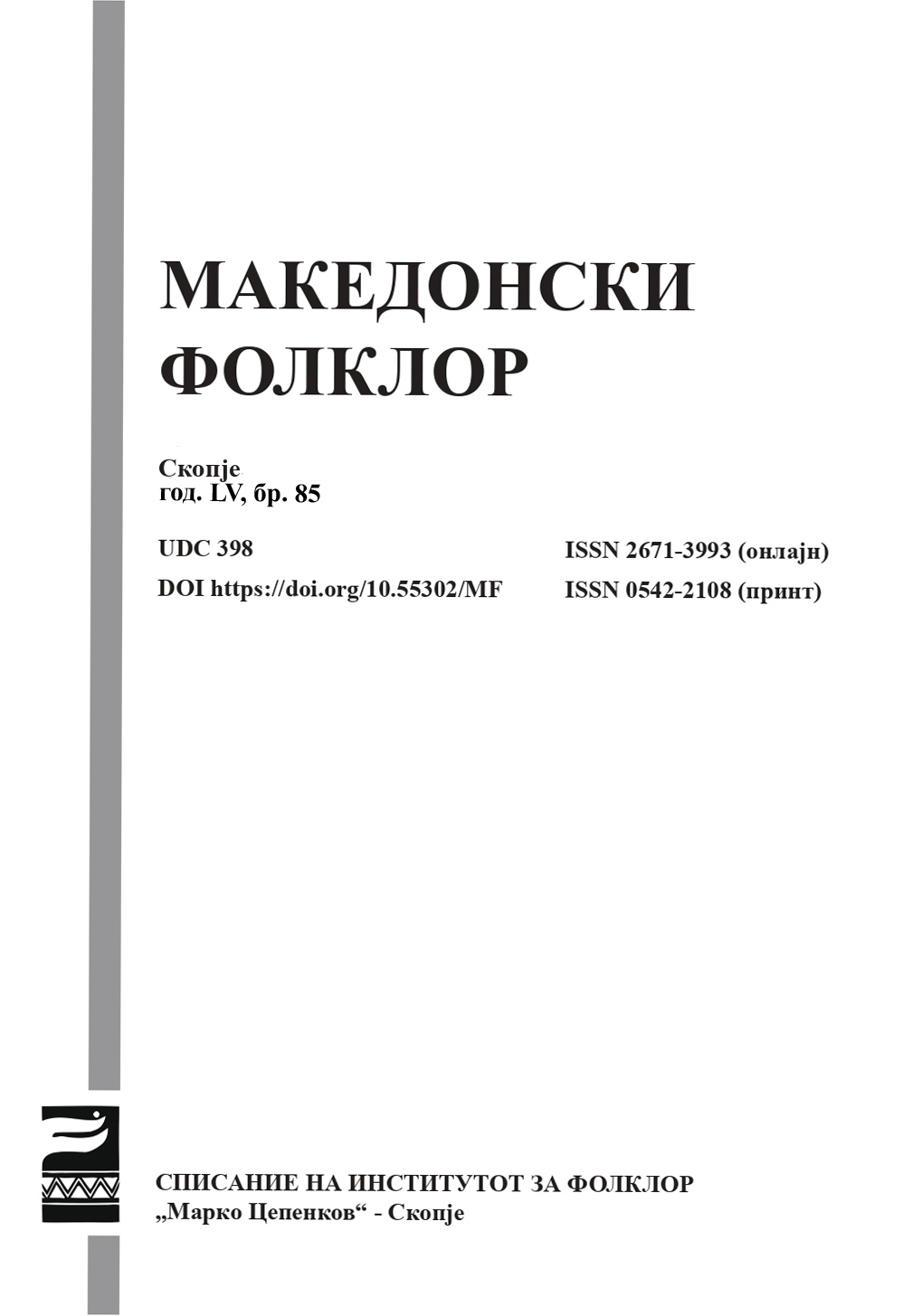„Младост(а) течит како река, ама не е за два века“: традиционални претстави за староста во нашето секојдневие
“Youth flows like a river but it does not last forever”: traditional presentations of old age in everyday conditions
Author(s): Vesna Petreska, Весна ПетрескаSubject(s): Social Sciences, Sociology, Gerontology
Published by: Институт за фолклор "Марко Цепенков" - Скопје
Keywords: old age; cultural and social construction; everyday life; ambivalence; illness
Summary/Abstract: Old age is viewed on the basis of the Macedonian traditional presentations, beliefs, folklore, and determination of the adult period, which is a cultural-social construction related to the economic productivity – regardless whether it refers totraditional or modern culture. In the traditional culture, through many rituals of family and calendar cycle and segments of the material culture, the ambivalent meaning of old age is also expressed, when it is associated with fertility and reproduction. The ambivalent meaning of old age can be seen through the healing rites and ceremonies, which were conducted by the “Old” women. The ambivalence is confirmed precisely by their age, because there were beliefs that they are able to communicate with both worlds. This also indicates their “Otherness”, which is even more emphasized since the diseases in the folklore acquire the epithet “old woman”.We can see this even better through the epidemics of diseases that have prevailed in these areas, such as plague, cholera, typhoid, Spanish flu, etc., which were also largely imagined as “old women”.However, associated with old age, quite naturally, come various fears as well, either in terms of illness, or the old people’s own thoughts about their passing away. Although ethnological, folkloristic and anthropological research has always insisted on obtaining information from older people, yet when they themselves wanted to say something about their situation, they would often end the conversations instead. The fears of diseases and death are especially expressed in times of epidemics that have occurred in the past, when the social unity is falling apart and is replaced by loneliness and the abandonment of the collective ritual actions related to death. These fears, beliefs and representations were also presented in our “new normal” everyday life, with the pandemic of Covid 19, which as “unknown” is associated with “otherness”, and the elderly are more exposed to it due to the weaker immune system.
Journal: Македонски фолклор
- Issue Year: LV/2024
- Issue No: 85
- Page Range: 151-171
- Page Count: 20
- Language: Macedonian

